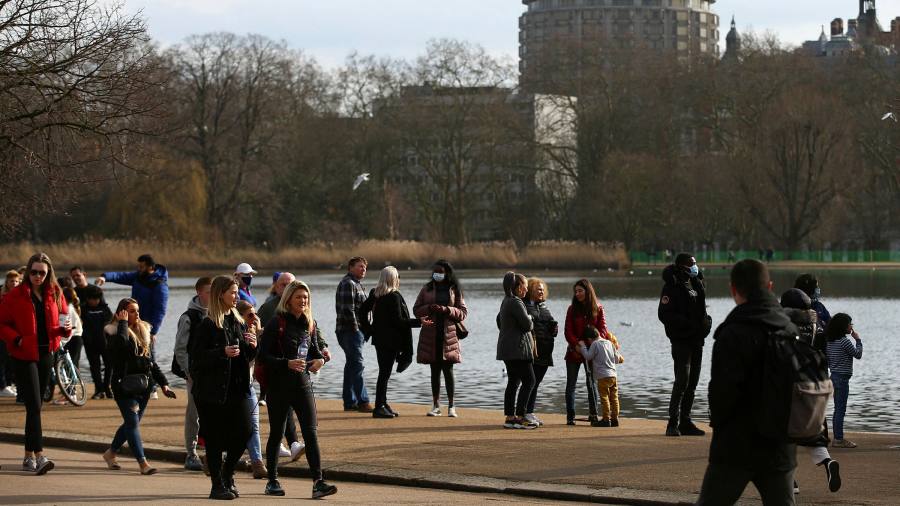[ad_1]
UK household savings grew in January as lockdown restrictions limited spending opportunities, increasing the reserves that could drive recovery once the economy reopens.
Households deposited an additional £18.5bn in bank accounts in January, data published on Monday by the Bank of England showed, well above the £4.8bn monthly average for the six months to February 2020, before the pandemic struck.
The January figure is close to other recent records — after the £20.8bn accumulated in December and the £26bn deposited in May — reflecting the limitations on spending during lockdown when service businesses, such restaurants and bars, have been shut.

The BoE calculated that between March and November 2020 consumers accumulated £125bn in savings, but now the amount has passed £160bn.
The BoE’s Monetary Policy Committee said in February it assumed that households would spend about 5 per cent of their additional savings as lockdown eases, but the figure could be higher.
The BoE said on Monday: “As restrictions ease, [consumers] might be keen to catch up a higher amount of their previously forgone spending than would be suggested by past evidence.â€
This echoes comments last week by BoE chief economist Andy Haldane that additional savings “would provide a very significant degree of additional demand stimulus to an already rapidly recovering economyâ€.
Others disagree. Michael Saunders, external MPC member, warned last month that household savings growth was “concentrated at the top end of the income scale and does not represent the experience of many peopleâ€, pointing to a smaller boost from accumulated deposits.
High uncertainty about the economy could result in household saving increasing further and consumers might spend the cash on foreign holidays and imported cars, providing little direct boost to GDP, according to Samuel Tombs, chief UK economist at Pantheon Macroeconomics. “We doubt much of this stockpiled cash will filter back into the economy over the next year,†he said.
Consumers have also been reducing their debts with net repayments of £2.4bn in January, the largest amount since May 2020, suggesting an improvement in household balance sheets.
The BoE data found that the mortgage market “remained relatively strong†in January.
There were 99,000 mortgage approvals that month, well above the 67,900 monthly average in the six months to February 2020, although down from 102,800 in December.

Jeremy Leaf, north London estate agent and a former RICS residential chairman, said: “The numbers demonstrate continuing resilience as the overwhelming majority of buyers and sellers determine to press ahead with their moves and take advantage of the stamp duty concession, which at the time they believed would end in March.â€
The tax cut on the first £500,000 of a home purchase could be extended in Wednesday’s Budget, further lowering costs for house purchases on top of persistently low interest rates.
According to the BoE, the average interest rate for newly drawn mortgages fell 5 basis points month-on-month to 1.85 per cent in January, just above the record low rate of 1.72 per cent in August 2020.
[ad_2]
Source link





